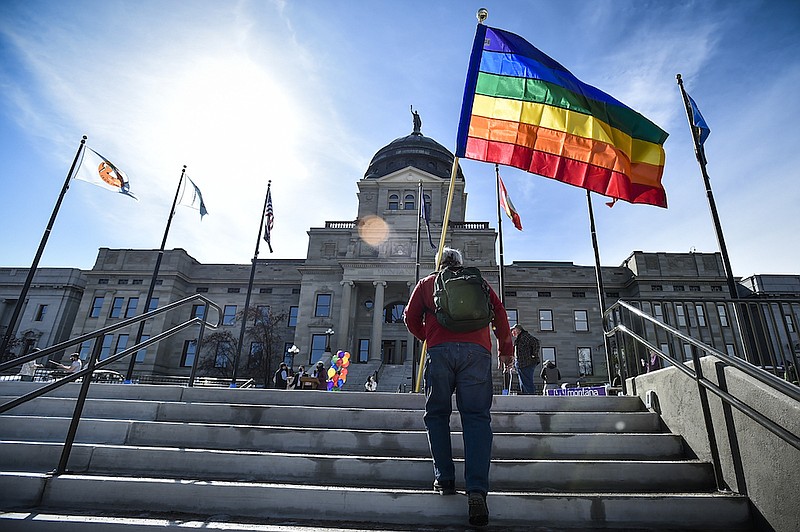Judging from the news coming out of half the legislative halls of America, you would think that the biggest problem facing women's sports hasn't been athletes being sexually abused but girls who were born with penises taking all the glory from those born with vaginas.
Out of all the things that give one student-athlete an advantage over another - more athleticism, better equipment, talented older siblings, more money for private training - these legislatures are focused on only one: whether transgender girls and women are unfairly beating other females in various school sports.
Lawmakers in at least 25 states are seeking to ban transgender students from competing in girls' teams in middle and high schools and in college. At least two states (Tennessee is one) so far have made it law.
It's conservative political grandstanding - a sequel to the intolerant "bathroom bills" a few years ago that sought to ban transgender people from the bathrooms of their sex - that can only result in a non-solution to an almost nonexistent problem.
Despite the anecdotes of outrage - cisgender girls who claim they would have taken more trophies home if it weren't for transgender athletes competing - the science and data simply don't bear this out. In 2018-19, about 3.4 million girls took part in high school sports alone, according to a survey by the National Federation of State High School Associations. Yet complaints about transgender female athletes are so rare that, if not exactly a unicorn, they're akin to the wild wolf population of California. Legislators in most of the states admitted to The Associated Press that they knew of no examples at all but were introducing the bills to stave off possible situations in the future.
Though the legislative movement is based mainly on intolerance, it has swept the nation because unlike other acts of hatred toward transgender people, it has a toehold on reality. The higher levels of testosterone in those born biologically male can lead a transgender female to be taller and more muscular, which can be advantageous in some sports. Not all sports, mind you; when it comes to the flexibility needed to excel in women's gymnastics, for example, cisgender female bodies hold the advantage.
But it's not that simple. For those who begin transitioning before puberty, which is increasingly common, hormone therapy prevents any physical advantages. And even in those who take hormone therapy later in life, the NCAA says, extra musculature and endurance dissipate within a year of treatment. NCAA rules prohibit trans female athletes from competing in women's events until they have completed one year of testosterone suppression.
It's not as though transgender women are sweeping all the sports events. CeCé Telfer, the first openly transgender woman to win an NCAA title (she transitioned while in college), lost plenty of track events running hurdles for Franklin Pierce University and said that her height actually handicapped her in some events. Two days after a Connecticut high school runner filed a lawsuit seeking to ban transgender runners from girls' track, saying she was being deprived of championship wins, she beat one of those runners for two state championship titles. The transgender girl came in 16th in one of those races.
At the Olympic or professional level, where the stakes are higher and careers can be long-lasting, it makes sense for tight rules and testing on testosterone levels that might give some athletes an advantage. But at the school and college level, the top priority should be inclusion, especially considering the taunting and rejection that often greet transgender youth.
Sports are a way to gain a feeling of belonging, as well as to build physical health and reduce stress. The benefit - and basic fairness - of providing that opportunity to trans female athletes vastly outweighs any rare, relatively minor boost to their performance.
The Los Angeles Times
